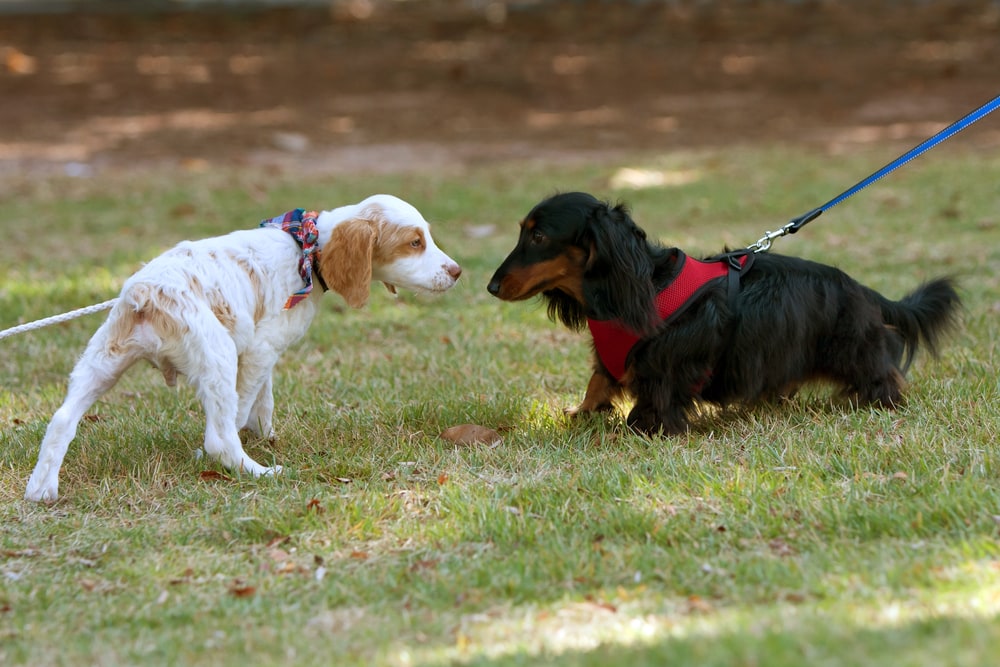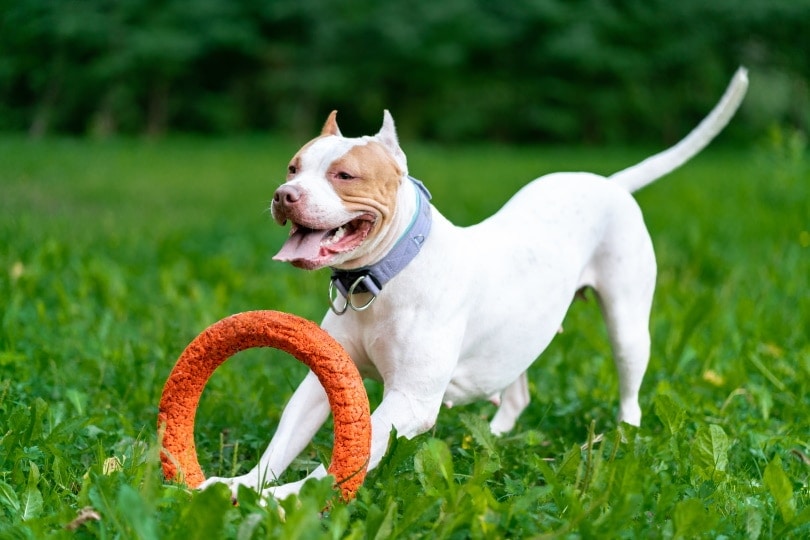Do Female Dogs Orgasm? Vet Approved Facts & FAQ
Updated on

Studies into human sexuality have long asked the question of if the female orgasm has any purpose. One literature review suggested that the female orgasm may be a leftover evolutionary function1. This means that, at one point, the female orgasm may have been necessary for fertilization to occur, but now serves no function.
It would seem that if orgasms were once a necessary aspect of human reproduction that other mammals, like dogs, may also have the same function. While the scientific verdict is still out on this one, it is commonly believed that female dogs do not have orgasms.
Do Female Dogs Have Orgasms?
There are very few animals in the world that have sex for the purpose of pleasure, and dogs don’t appear to be one of them. Dog mating often involves a tie, which is when part of the male’s penis swells inside of the female, tying the dogs together for a period of time. This seems likely uncomfortable and far from pleasurable—definitely not something we would think of that would lead to an orgasm.
Do dogs have orgasms at all? Yes, male dogs do have orgasms. While male dogs orgasm for the purpose of reproduction, there’s nothing to indicate that male dogs’ orgasms are particularly pleasurable either.
Why Do Some Dogs Masturbate?
You might wonder why dogs would participate in masturbation behaviors if they don’t experience sexual pleasure. Masturbation in dogs typically involves humping or rubbing against objects, other dogs, or even people’s legs. There are a lot of reasons that dogs do this, from stress to hormonal shifts. Masturbation isn’t thought of as an activity for the purpose of reaching an orgasm, though.
Should Dogs Be Allowed to Have Sex?
Outside of the purpose of reproduction, the answer to this question is a resounding no. A female dog is typically only receptive to a male while she’s in estrus. female dogs won’t likely accept the advances of a male while out of estrus. If both animals are intact and breeding is desired, then they can be allowed to mate, although this typically should be done with supervision to ensure neither animal gets hurt.
If you are not a dog breeder, you should not be letting your dog have sex for any reason. Mating may not only be uncomfortable for female dogs, there is a risk of injury that comes with dogs tying as well. If the dogs pull away from each other or someone attempts to separate them while they’re tied, this can lead to injuries to the genitals of both dogs. Plus, you’re likely to end up with a pregnancy.
Dogs don’t seem to have sex for pleasure in the way that humans do, so there’s no reason for a male dog to be allowed to have sex “just because” or because he seems sexually frustrated. Sexual frustration in male dogs can be managed through behavioral training and neutering, and it should not be encouraged.

In Conclusion
Female dogs aren’t thought to orgasm, likely because there’s no evolutionary or reproductive advantage to it. Because of the physiology of dogs, they are remarkably successful at breeding without the necessity of pleasure. Dogs are not one of the few animals that have sex for pleasure, so sexual behaviors should be discouraged. Allowing mating to occur outside of an actual attempt to breed two dogs should be looked at as irresponsible and can lead to injury for one or both dogs.
Featured Image Credit: JELIZAVETA KARAKAJA, Shutterstock













